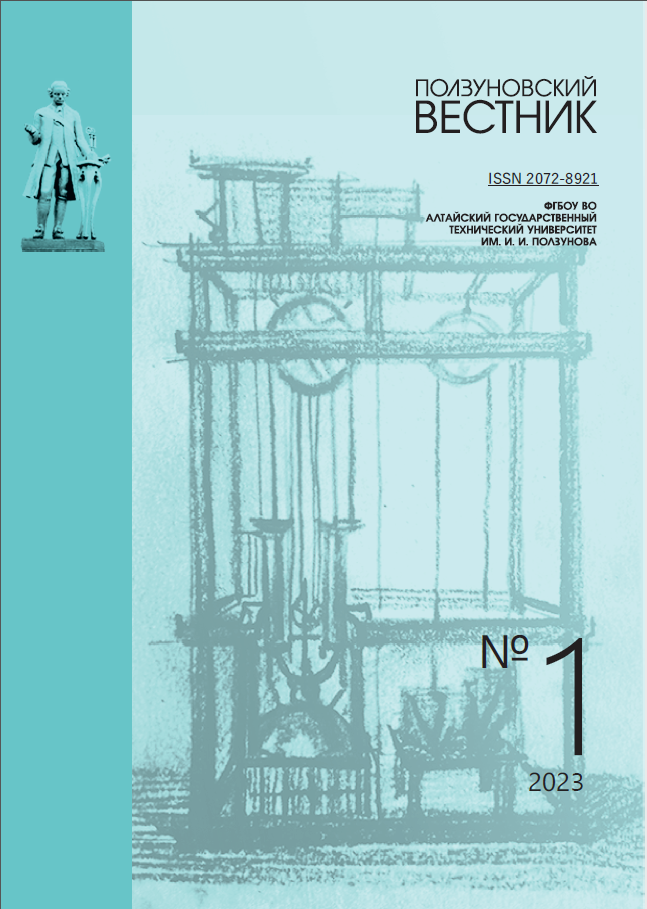РАЗРАБОТКА МАЙОНЕЗА, СБАЛАНСИРОВАННОГО ПО ЖИРНОКИСЛОТНОМУ СОСТАВУ
NLRHNE
DOI:
https://doi.org/10.25712/ASTU.2072-8921.2023.01.015Ключевые слова:
эмульсия, майонез, жирные кислоты, функциональный продукт, сбалансированный, хроматограф, хроматограмма, ω -3, ω -6, рапсовое масло, кукурузное масло, масло грецкого орехаАннотация
В рационе питания современного человека прослеживается дефицит полиненасыщенных жирных кислот групп ω-3 и ω-6, в частности из-за невозможности синтезировать эти жирные кислоты организмом самостоятельно – они поступают в организм только в составе продуктов питания. Майонез является одним из продуктов, который ежедневно употребляется практически каждой российской семей. Основой всех майонезов служат растительные масла, имеющие в своем составе эссенциальные жирные кислоты. В процессе работы рассчитана рецептура майонеза, обогащенного полиненасыщенными жирными кислотами, благодаря введения в состав купажа растительных масел. Обосновано введение каждой из рецептурных составляющих. В данной статье проведен хроматографический анализ майонезной эмульсии, произведенной по предлагаемой рецептуре. Установлено соотношение полиненасыщенных жирных кислот групп ω-3 и ω-6 в полученном образце продукта и обоснована перспектива использования данной эмульсии в качестве функционального жирового продукта, имеющего сбалансированный жирнокислотный состав. Установлено, что в целях получения функциональных продуктов с повышенным содержанием ненасыщенных жирных кислот рационально использовать рапсовое, кукурузное масло и масло грецкого ореха, ввиду высокого содержания в них эссенциальных жирных кислот, наиболее ценных для человеческого организма. Соотношение ω-3 и ω-6 жирных кислот составило 1:5, что дает возможность отнести полученный продукт к функциональным. Полученный образец майонеза удовлетворяет суточную потребность в них примерно на 73 % для женщин 18-29 лет; и на 59 % для мужчин 18-29 лет (если продукт употреблять в количестве 50 грамм в сутки). Органолептические показатели готового продукта соответствуют стандарту, используемому для характеристики майонезной продукции в РФ.
Библиографические ссылки
Рахимова Э.И., Сироткин А.С., Саитова Э.Э. Обоснование и промышленная реализация обработки оборудования острым паром при производстве майонеза // Вестник Воронежского государственного университета инженерных технологий. 2019. Т. 81. № 1 (79). С. 88-93. doi: 10.20914/2310-1202-2019-1-88-93.
Соловьев И.В. Состояние рынка майонеза и перспективы его развития в России // В сборнике: Азия - Россия - Африка: экономика будущего. Материалы IX Евразийского экономического форума молодежи. 2018. - С. 206-209.
Покровский Н.В., Власова М.В., Пашкевич Л.А. Исследование качества майонеза функционального назначения // Вестник ОрелГИЭТ. 2017. № 2 (40). С. 89-92.
Разработка жировой основы майонеза, состоящей из смеси растительных масел / Омельяненко О.С., Задерецкая Е.В., Рожкова А.С., [и др.] // В сборнике: Рост и воспроизводство научных кадров в АПК. Сборник трудов по итогам Российской национальной научно-практической интернет-конференции для обучающихся и молодых ученых. 2020. - С. 354-358.
Николаева М.А., Рязанова О.А. роль внешней торговли в развитии рынка масложировых продуктов в России // Российский внешнеэкономический вестник. 2018. № 5. С. 66-84.
Разработка ресурсосберегающей технологии комплексной переработки масличных культур на сырьевые компоненты / Копылов М.В. [и др.] // Ползуновский вестник. 2019. № 2. С. 7-11. doi: 10.25712/ASTU.2072-8921.2019.02.002
Остриков А.Н., Терёхина А.В. Конструктивное оформление и методика расчета процесса получения сливочно-растительных спредов // Вестник Воронежского государственного университета инженерных технологий. 2018. Т. 80. № 2 (76). С. 23-29. doi: 10.20914/2310-1202-2018-2-23-29
Терёхина А.В., Копылов М.В. Жировая основа спредов функционального назначения / В сборнике: Инновационные тенденции развития российской науки. Материалы XV Международной научно-практической конференции молодых ученых. Красноярск, 2022. - С. 454-455.
Загрузки
Опубликован
Как цитировать
Выпуск
Раздел
Лицензия
Copyright (c) 2023 Анастасия Викторовна Терёхина, Екатерина Юрьевна Желтоухова

Это произведение доступно по лицензии Creative Commons «Attribution» («Атрибуция») 4.0 Всемирная.
















 .
. Контент доступен под лицензией
Контент доступен под лицензией 
